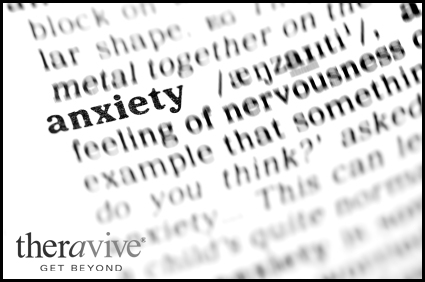 ANXIETY
ANXIETY
Anxiety can be crippling, especially if it is free-floating anxiety, as if you were thrown into a state with no beginning and no end. Pay attention to what your thoughts are that you were having that may have caused or increased your anxiety. Was there an interaction with a stranger in a store, or with a loved one, that has made you feel negative about yourself? Did you just think of a friend, your mother, father, or a sibling before the anxiety came on or increased?
In psychotherapy I will ask you to notice these things, and more, so that I can help you to discover a pattern of experiences that may be contributing to your anxiety. Over time, you will discover the heretofore unknown causes of your anxiety states.
When the anxiety is overwhelming, we must admit that it is a feeling state that has its roots in fear. I then ask the patient to explore underlying causes of the fear, and what it is about.
If you can pay attention to what has happened recently, or what you were thinking before the free-floating anxiety began or got worse. We can use these specific examples by doing a gestalt technique, or role playing, which will help your internalized fears to come to the surface.
As you begin to come to grips with a theme or motif that is behind your anxiety states, you will learn how to control it and cope with it more effectively.
If there is a situation or intimate person in your life that you have conflicting feelings about, or that is down-right problematic, we will have to talk about it in therapy to explore the various feelings of hurt, anger, fear, abuse, or you partner’s abuse toward you, such as trying to make you feel stupid, wrong, or worthless. Then I can help you to find new and healthier ways of dealing with the person or situation.
Sometimes you may bury your real feelings at the time of a confrontation, for fear of rejection or an argument if we speak up. In therapy I will help you to learn better, healthier responses and behaviors. Once you become aware of the issues behind your avoidance behavior or defensive mechanisms, like denial, obsession (e.g., isolating a thought), or displacing your anger onto another person or situation, you will be able to change your responses and gradually, anxiety will not be a problem.
 PHOBIAS
PHOBIAS
Phobias occur as a result of deep, underlying fears that have not been looked at. Instead, they have been repressed and stay in the unconscious mind. This does not mean that the fears have gone away simply because they have been repressed. In fact, they become bigger and bigger, eventually bursting out in some destructive way.
The repression, if not treated, may turn into phobias. The unconscious mind is like a dark basement; but when the light is turned on you are able to see what is there.
Phobias may begin with years of anxiety that persists when the underlying issues are not dealt with. Phobias may also begin when you engage in a new experience in your life such as, having your first baby, a new job or loss of one, the beginning of a marriage, etc. With chronic states of anxiety over a period of time, it may seem normal to you in some respect; something that you get used to and learn to live with.
When anxiety turns into various phobias such as, claustrophobia (fear of close-in or small spaces); fear of heights or going over bridges; phobias of bugs; and agoraphobia (fear going out of the house) which is perhaps the worst of all phobias. Someone may call me and say, for example, “I am suddenly afraid of just about everything, I can’t bear it…by the way: Do you make house calls?” Obviously this person is experiencing agoraphobia and is too paralyzed by it to go out in order to come to the therapy session. Agoraphobia is most debilitating, as one cannot go to work, or out with friends, or shopping, to even to therapy session. If you are in this category in which agoraphobia prevents you from coming to psychotherapy and getting the help you need, I would suggest having someone you trust to bring you to the therapy session, if possible. Even though this may still be scary, you must take a leap of faith and rely on this trusted person for support so that it can be dealt with and cured in therapy.
Phobias can get worse if you are in a relationship or marriage in which your partner is abusive, puts you down, or is cruel emotionally and/or physically. This exacerbates your phobias, as do other situations such as, menopause and other life changes, as mentioned above.
Also, phobias may act in a way in which you obtain “secondary gain,” Secondary gain means that you have been taught that you should not ask or expect your significant other to meet your needs; unconsciously you receive more attention by developing a crippling phobia. It is not done on purpose; therefore, you can learn better coping mechanisms in therapy. It is important, with a therapist that you trust, to be able to acknowledge the repressed needs and to learn to get them met, without fear. I will help you to express your needs openly and to come to feel that you are deserving of are and nurturing from a significant other or family member. This method undoes the phobias and you may then lead a normal, happy life.
About the Author

Saranya Tracey
, M.A. Clinical; Certified JungianSaranya can help you to make changes that will enable you to lead a healthy and happy life. You will benefit from Ms. Tracey's 23 years of experience and expertise as a psychotherapist .In addition to obtaining her Masters in Clinical Psychology, Saranya has been certified by four Manhattan training institutes, including: Psychodrama; C.G. Jung Foundation for Trans-personal therapy; Schema Therapy (also known as "Lifetraps"); and Core energetics/Bioenergetics; and hypnotherapy.
Office Location:
1101 Ocean Avenue
Bradley Beach, New Jersey
07720
United States
Phone: 732-832-9797
Contact Saranya Tracey